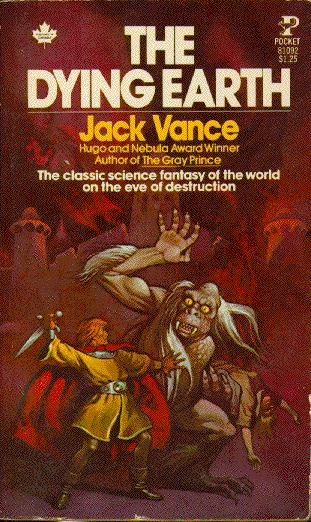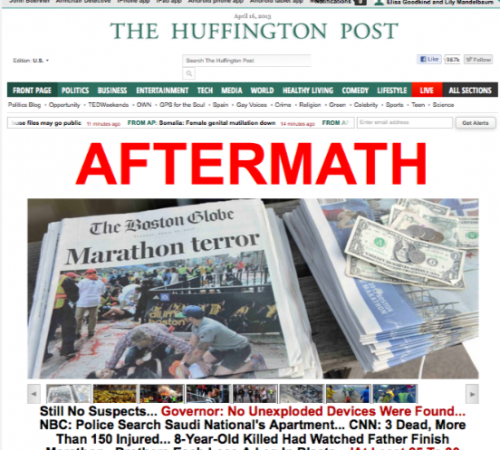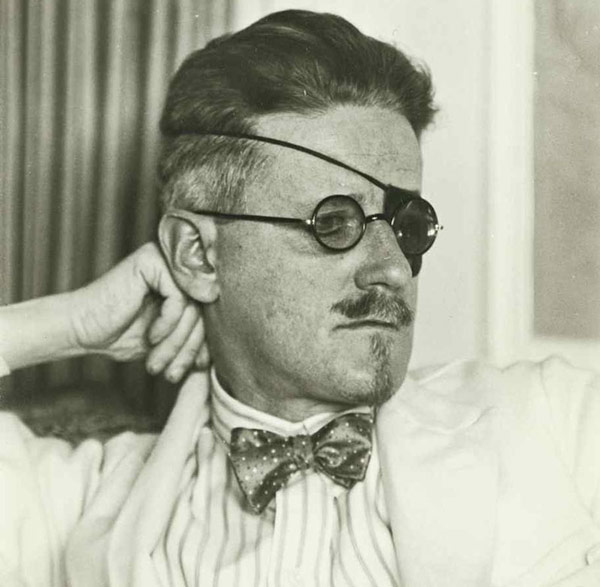What is a Real Substitute For Blood?: An Interview with Patty Yumi Cottrell
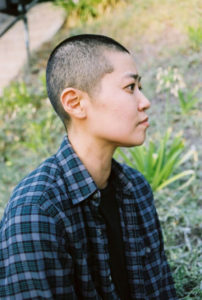
What is a Real Substitute For Blood?: An Interview with Patty Yumi Cottrell
Patty Yumi Cottrell’s debut novel is Sorry to Disrupt the Peace, an “anti-memoir” about Helen Moran, a thirty-two year old adopted Korean woman who has to return to Milwaukee to investigate the sudden death of her fellow adopted Korean brother. It’s a weird little stall because the lurch of Helen’s brother’s death will get you to turn the page, but there are so many things that only Helen could say that will make you want to read and re-read them and cut them out and wear them into a suit of koan-like kernels to guide you through your each and every day. Helen drops gems like “the eye is a terrible organ” or “time itself is nothing but a construction to organize and measure flesh decay.” All the while cramming into this claustrophobic home that never really felt like a home with her adoptive white parents who are disappointed when she accidentally kills all the flowers meant for her brother’s funeral. There’s a vision of a balding European man. Books on drawings of trees in the Midwest. The abyss. Chad Lambo, the grief counselor. It’s a weird and dark and funny stroll. It nods to Sheila Heti, Thomas Bernhard, and Miranda July, but is completely of Patty Yumi Cottrell’s own making. After all, in the words of Helen, “everything in the world is a palimpsest, motherfuckers!”
March 22nd, 2017 / 11:54 am
Amelia Gray’s Threats
Once I read Amelia Gray’s first novel, Threats.
I wanted to read it because I like threats, since they connote violence. I also wanted to read it because Amelia Gray is such a pretty name. Four out of the six letters in Amelia are vowels, the prettiest variety of letters. And gray is one of the best colors, being the color the sky turns when it’s stormy out.
The stars of the novel are a husband and wife, David and Franny. It was really refreshing to see a novel about a traditional husband-and-wife couple, especially nowadays, with so many liberal losers French kissing the tushies of same-sex couples.
Being traditional (i.e not a bisexual weirdo) is not synonymous with being bland. David and Franny are quite exceptional. A former dentist, David had “a keen ability to sense weakness prior to its development.” David can foresee when a tooth is about to be terrible before it actually is terrible. As for Franny, she’s dead. Being dead is much more special than being alive. Randi Zuckerberg, Sherly Sandberg, Kenneth Goldsmith — they’re all alive. Are they special? No.
Amelia’s narration of the peculiar couple’s tale is lucid. Using neatly constructed moments, Amelia discloses how eerie this boy and girl are. There’s one scene in which David takes out all of the old, neglected freezer food and starts to put it in his tummy. “There were bricks of ground beef fuzzed over with frost,” says Amelia, in a splendid sentence, where two words begin with “b,” two words start with “f,” and every word but one is a taut syllable.
Franny, who worked at a salon before dying, met her husband at the grocery store. The grocery store is an endearing place. It’s where one purchases hot cocoa, cookies, and other delicious delicacies.
Besides Franny and David, Amelia’s story contains lots of other captivating characters. There’s a contemplative popo named Chico, a girl who resides in David’s wasp-wrought garage, and a boy in search of sugar cereal.
As for the threats that David continues to uncover, you should read Amelia’s book to find out about them.
I Like Church A Lot
Hey, I had to go to a church recently. I was doing some childcare for a relative, and it was on a Sunday. Kids of a certain age lead an orderly life. Included in the order of the lives of the kids for whom I was providing some childcare was their regular Sunday morning visit to a Unitarian church in Seattle. Being a dutiful relative, I agreed to keep the child to the child’s orderly life and attend a Unitarian church service with the child.
And I had a pretty good time. It seems I like church a lot.
Turns out even though I stopped going to church 28 years ago, and even though I attended an Anglican church during the years I attended church, I still had all the rhythms of church hardwired in me. I may not have known the specifics of the creed or the words to the hymns and the prayers, but I felt like I knew all the gestures and the sentiments. I knew when to stand and when to sit. The Unitarian service’s language seemed a little strange to me—it was 19th century, and felt American, and seemed weirdly concerned with architecture—but everything else clicked into place pretty easily.
Best of all, though, it gave me an opportunity to sit and really think about death. I mostly don’t really write anymore. I mostly just sit and think about death. I mostly try to sleep and can’t sleep because I start to think about death and then find I can’t sleep because I’m thinking about death. And I mostly feel weird about lying in bed thinking about death because it doesn’t seem like the right place to be thinking about death, so I don’t sleep. I should be trying to sleep. I should be trying to clear my mind. I fight to clear my mind. I fight to clear out thoughts of death. And I fail and fail and fail.
Churches, as I’m sure you are already aware, are all about death! They don’t ask you to clear your mind of all thought of death.
And the church didn’t just give me a place to think quietly about death. It was a place to think about it actively and in a participatory way. It gave me plenty of cues telling me that I was in a place where thinking about death was encouraged. I found myself thinking about death in the proper setting. The right context. It was fantastic.
Like:
Many of the seats in the church have little plaques on them. The plaques say that the seats were “given” to the church in honor of someone. And that someone is dead!
Many of the books in the church have bookplates in them. And the bookplates say that the books were “given” to the church in honor of someone. And that someone is dead, too!
The programs they give you when you enter the nave to find a seat are filled with the names of the dead. The songs sung in a church are slow and quiet and mention death a lot. There are moments in a church service when everyone is asked to sit quietly, and during those moments, you can hear little creaking noises and breaths and coughs. Human bodies are filled with gas, and after death they make creaking and sighing noises. And the “death rattle” is a sort of choking cough people near death make when their throats fill up with saliva they can’t swallow because they are dying and all their energy is going to that instead of to swallowing.
And, of course, a church was just lousy with older people who are really close to their own deaths. They’re the ones making most of the noises in the moments of quiet reflection. Because their bodies are getting away from them. Because getting older is just the our bodies getting away from us. Until finally, we can’t stop our bodies from getting so far away from us, they cease to function entirely. Try as we might to stop it from happening, our bodies just give up. Think about that next time you are unable to keep from coughing. Your brain fights and fights, but you cough, because you can’t will your body to stop. You’re going to die someday, and it might be like that. Your mind might be sharp or it might be dulled with medication or decay, but it might still try to will your body to keep going, but your body won’t have you telling it what to do. It will just stop working.
Thinking about that in church felt far less menacing to me than it does when I’m in bed, and the person next to me is asleep. And I’m not asleep, but I’m trying to sleep, and instead I’m worrying about death.
I like church a lot.
Have a good weekend, everyone.
We Got Sick of Theory and Talked About That
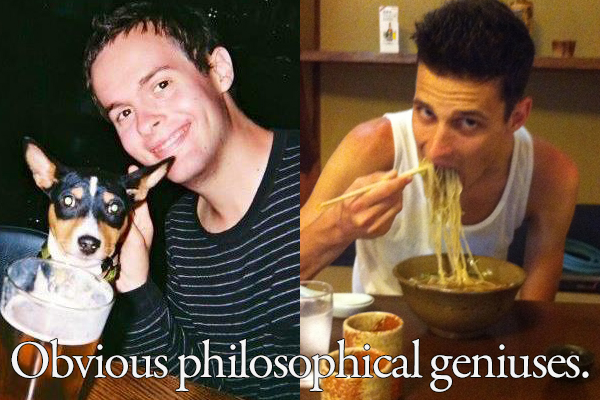
Between July 9th and August 5th , Alec Niedenthal and I had a long & blabby conversation that began when Alec enthusiastically responded to me saying “I’m almost completely gagged now by fucks like Deleuze.” Knowing Alec mostly as a fellow young philosophy & theory head, I asked after his newfound disillusionment with the stuff.
That conversation posted here—mostly unedited—in hopes you find it useful or rousing.
Ken: What literature strikes you as bullshit now?
Alec: Your question is great, but I’m not sure that I’m equipped to answer it. I’ll explain why. First, I’m not sure how possible it is today to talk about what sort of art is valueless, ie bullshit, when the role of art is so unclear and, less evidently but no less significantly, when we as avant-garde writers are unsure whether there should be an institution called “Art” any longer. That’s to say, it’s hard to even talk about what literature should be doing when the “should”-level claim about literature in general—basically, what it ought to depict and how to depict it—is supposed to be. READ MORE >
Dear White Race,
One dead white peoples equals how many dead non-white peoples?
Huh?
Huh?
Huh?
xoxo,
Baby Marie-Antoinette
***
— 14 April 2013: 30 children were killed in Syria.
— 15 April 2013: At least 37 people were killed in Iraq.
— 15 April 2013: 3 people were killed in Boston.
The icky white race says:
***
Baby Marie-Antoinette’s “Dear White Race” letter was first published 15 April 2013 on the cute literary corporation Bambi Muse.
I Am Prepared to Read Many More Novels About People Fucking
I haven’t read Sheila Heti or Ben Lerner’s recent novels, the impetuses for Blake Butler’s recent, anti-realism-themed Vice article, but I’d like to respond to Blake’s finely-written itemized essay, because I, personally, continue to desire novels written by humans, which relate, slipperily or not, to human reality—subjective, strange and ephemeral as it is–novels which deal with such humdrums as sex, boredom, relationships, Gchat, longing, and, beneath all, death. I want a morbid realism.
I agree with Blake that a reality show like The Hills and social media such as Facebook create stories by virtue of humans doing simply anything. The documenting, sharing, and promoting of mundane everyday human life is more prevalent and relentless than ever before. In this environment, literature (and movies) about humans (most controversially, about privileged, white, hetero humans) that presents everyday drank-beers-at-my-friend’s-apartment life, wallows in self-pitying romantic angst, and doggy paddles po-faced through mighty rivers of deeply profound ennui can potentially seem annoying, or boring, or shittastical.
DeAtHbOoK rEvIeWs: Reviews of Books with Death in the Title that We’ve Never Read
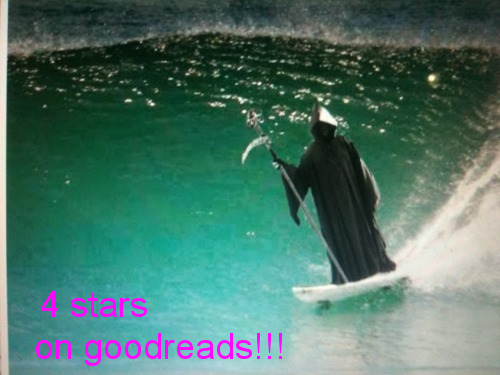
The following are REVIEWS OF BOOKS WITH DEATH IN THE TITLE THAT WE’VE NEVER READ. We’ve done our best to highlight some of the best classic and contemporary books with death in the title that we’ve never read for your very own reading pleasure. Please enjoy (while you still can)!
THE DEATH OF PRINGLE by Justin Katko
The Death of Pringle is a journey through the infinitely depressing matrix of trying to eat less than 10 grams of carbs a day for the rest of your fucking life.
DEATH IN A BOX by Alta Ilfland
Who hasn’t dreamt, on a mundane Monday or frowzy Friday, of starting a tumblr? Tumblrs entice, but is it really all a golden road to viral? Alta Ilfland answers that question with wit, warmth and wicked candor in the chronicle of her own foray into tumblr. Beginning, appropriately enough, on New Year’s Day with a divine idea, Ilfland sets the scene and pits her poetic sensibilities against tumblr. “I had talked about it / during the long gray winters / and the damp green summers…” she writes, “looked / with an addict’s longing / at film stills, dreamed / of waking up in the middle of the night / to reblog.” Indeed, not 10 pages into the book, reality comes crashing into conflict when no one follows her. In verse that skips along lightly, Ilfland records the highlights of each month, from no followers in February to one follower in March to the loss of that follower at Christmas—all the while trading her irl existence for the glow of the screen.


